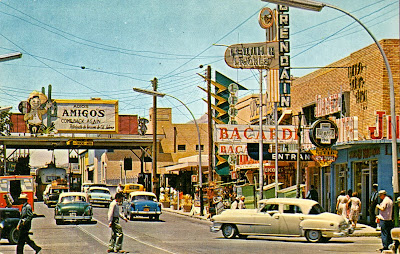On January 14th, 1986 Esquire Magazine's David Hirshey contracted Dad to write a short 500 word piece on divorce due February 14th for $500. The article "Adios, Mi Esposa" was published in June 1986 in Esquire's special "The American Man 1946-1986" issue.
Twenty years ago I was separated from my wife and living in a 14th Street studio apartment in New York City while she and our two small children were living in our Tuxedo Park house. We had been through counseling, lonely trial separations, tearful reconciliations, countless mean accusations and hurtful recriminations and we did not want to stay married to each other anymore.
In the mid-60's, unless a spouse was imprisoned for three or more years, the only grounds for divorce in New York were adultery, cruel and inhuman treatment--which primarily means physical battery--or extended abandonment. Neither my wife nor I had abandoned each other or were in prison; and to file for divorce on either of the two remaining grounds seemed loathsome. We didn't want to punish each other further, we just wanted to be free; but obtaining a divorce based on fault we knew would be painful, time-consuming and --as it would involve New York lawyers and New York prices--expensive. So I went to Juarez where, I'd been instructed, I would appear in person before a Mexican magistrate along with a lawyer representing my wife.
In order to qualify for Mexican residency I crossed over from El Paso and spent the night in a Juarez motel. The following morning my Mexican lawyer met me and took me to a wood-paneled courtroom where along with perhaps a dozen other American men and women--there presumably for the same reason-- I stood guilt-ridden before a raised judicial bench behind which sat a tired, exasperated gentleman in a dark wash and wear suit. Without looking at us he addressed us at length in Spanish. I could never understand a word he said. And since my lawyer was nowhere around, I became increasingly uneasy that I was in the wrong courtroom. Throughout he entire proceedings the only person who spoke to me directly was a small boy selling Chiclets. Eventually we were dismissed and i went outside into the bright, merciless sunlight -- my eyes watering and blinking. Only then did I see my lawyer again.
"It is natural to be emotional at these times, " he said.
"Am I divorced?" I asked.
"The decree will be final in three days," he said. "You may return to New York."
I took a taxi back to my motel and showered. I stood under the water thinking about my ex-wife, my two children and the terrible things I had done. I remained there for a long time scrubbing myself without ever feeling clean.
I flew back from El Paso to New York that afternoon. By coincidence on my plane was the graduating class of the American Airlines Stewardess College. One of them, a pretty dark-haired Scot, had never been to New York before. By two the following morning she and I had ended up in a bar around the corner from my apartment. She was drinking Irish Coffee because, she insisted, it would sober her up. Suddenly she lurched forward and grabbed my crotch. "Tell me you love me a little," she said.
"Or what?" I asked. "You'll rip it off?"?
She pulled her hand away as if she'd been burned. "Need I remind you, " she said indignantly . "I am a stewderess!"
I gave a cabdriver enough money to see her safely home. That night alone in bed I felt I might have done at least one right thing that day. I was not sure what.


